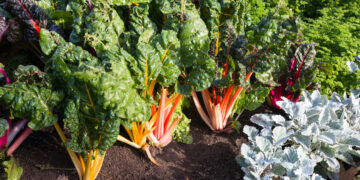Ten years ago, the idea of a global day dedicated to “yoga” might have seemed far-fetched. But
here we are—yoga mats unrolled across the globe, from bustling urban parks to silent, icy
outposts in Antarctica. The International Day of Yoga (IDY) has become much more: a
movement rooted in well-being, connection, and a shared sense of humanity.
The journey to make yoga a global movement started in the year 2014, when our Honorable
Prime Minister Shri Narendra Modi addressed the UN General Assembly in September that year.
His message was simple and powerful:
“Yoga is an invaluable gift of India’s ancient tradition. It embodies unity of mind and body;
thought and action; restraint and fulfillment. It is not about exercise, but to discover the sense of
oneness with yourself, the world, and nature.” On the directions of our Honorable Prime
Minister, India’s permanent representative to the UN moved the resolution in the UN General
Assembly on December 11, 2014, to observe June 21st as “International Day of Yoga,” which was
approved by 177 member states of the United Nations General Assembly (UNGA).
In the resolution, adopted under the agenda of “Global Health and Foreign Policy,” the UN
General Assembly recognised that yoga “provides a holistic approach to health and well-being”.
For the wider dissemination of information about the benefits of practicing yoga for the health of
the world population, the 21st of June is celebrated every year as International Day of Yoga
(IDY) across the globe. The main significance of the UN declaring an “International Day” is to
focus the attention of the international community on the topic and to encourage activities among
the member states to commemorate the day.
As we celebrate the 11th anniversary of International Day of Yoga, the 2025 theme, “Yoga for
One Earth, One Health,” brings the message home. It’s a reminder that our health and the
planet’s health are deeply intertwined. Yoga embodies the philosophy of holistic well-being –
uniting the health of individuals with the health of the society and the planet. The principle of
“One World, One Health” emphasizes the interconnectedness of human, animal, and
environmental health, echoing the ancient yogic wisdom of unity (Vasudhaiva Kutumbkam – the
world is one family). It is a philosophy that tries to foster an understanding that the whole of
humanity is one family. It is a social philosophy emanating from a spiritual understanding that
the whole of humanity is made of one life energy or Universal Consciousness.
Yoga is a code to connect people with life and to reconnect mankind with nature. It expands our
limited sense of self to see our families, societies, and mankind as extensions of our own selves.
Yoga is a journey from me to we. Yoga makes an individual a better person in thought, action, knowledge, and devotion. Once an individual develops an interest in yoga and starts diligently
practicing it, it will always remain a part of his or her life. Yoga is the entrance point to one’s
spiritual journey. By practicing yoga, a spirit of oneness is created—oneness of the mind, body,
and intellect. Oneness with our families, with the society we live in, with fellow humans, with all
the birds, animals, and trees with whom we share our beautiful planet… this is yoga. Yoga has the
potential to herald in a new Yuga (a new era) of peace, compassion, brotherhood, and all-round
progress for the human race. Yoga is not only about Asanas. It is much more. It is a blend of
Gyan (knowledge), Karma (action), and Bhakti (devotion). Yoga is a symbol of universal
aspiration for health and well-being; it is health insurance on a zero budget. Yoga is not only
about “Rog Mukti” (eradication of diseases) but also about “Bhog Mukti” (desisting from
worldly greed). June 21, 2015, marked the first IDY celebration. In Delhi, nearly 36,000 people,
including the Prime Minister, gathered on Rajpath for a mass yoga session. It wasn’t just a
moment of national pride—it was the beginning of a global tradition.
Every year, Millions of people across the globe practice yoga, even during COVID-19. The
theme was Yoga at Home, Yoga with family, and several people across borders participated in
online yoga sessions. The Honorable Prime Minister also encouraged the countrymen to practice
yoga during COVID times for community, immunity, and unity. Teleyoga guidelines were also
released by the Ministry of Ayush during this year. The scale of participation led to several
Guinness World Records, the recent one being around 3 Lakh people doing yoga across a 28 km
stretch of beach road in Visakhapatnam, AP, along with our honorable Prime Minister. The scale
of celebrations and reach has only grown over the years from the poles to the parks, from far off
villages to the bustling urban jungles, from Icy heights of the Himalayas to the deserts, from kids
to elderly, from layman to the armed forces yoga is being practiced by all irrespective of race,
religion, geographies and age.
This is reflected in the growing participation numbers each year, reaching approximately 25
crore. IDY is celebrated with different themes each year and innovative campaigns to reach out to the
masses. This is celebrated using a whole-of-Government approach wherein all Ministries and
Indian Foreign Missions take part in this global campaign. The Guardian ring of yoga starts
from the coverage of IDY events across cities from the first Sunrise in the eastern Hemisphere to
the last sunrise in the western hemisphere. The Sagar Mala or Ocean Ring of Yoga is a calling to
observe yoga at all the seaports among nations friendly to India.
The Indian Missions also engage the citizens in their countries on yoga by conducting workshops, IDY Common yoga protocol training, seminars, competitions, etc. to spread the message of yoga.
The International Day of Yoga is now a global movement that spreads the ancient Indian wisdom
and culture among the comity of Nations with a call for Health, Harmony, and Well-being. Yoga
isn’t just about touching your toes, but is about touching and transforming lives.
Author: Dr Raghavendra Rao M, BNYS, PhD (Yoga & Life Sciences), DSc (Yoga & Life Sciences)
Director, Central Council for Research in Yoga and Naturopathy, Ministry of Ayush, Govt of India.





















